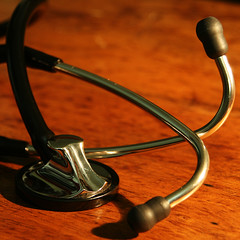Now that you are nearing the end of your MBBS, you need to start looking at which field you should go into. Reflecting on your expertise and natural talents is an excellent place to start. However, you should also choose something that you find interesting, and remember that looking at the most exciting recent medical advances may help you decide. We will explore the top five fields you should consider.
Top 5 Fields to Consider After MBBS
1) Cardiology

If you go into cardiology after MBBS, your work will focus on disorders of the heart. You will diagnose and treat a range of congenital heart defects, including malfunctioning heart valves, heart rhythm problems, and abnormalities in the septum. You will also design rehabilitation programs after major cardiac events, and treat patients who are in heart failure. If cardiology and surgery appeal to you, then you can choose to become a cardiac surgeon, which will involve performing open heart surgery on the heart and the body’s major blood vessels. Now is an excellent time to go into cardiology or cardiac surgery, as recent advances include an inventive new method of freezing heart tissue that can cause rhythm disorders, as well as the exciting development of non-surgical valve replacement procedures.
2) Psychiatry
As a psychiatrist, you will deal with mental and behavioral problems and attempt to treat them (while carefully monitoring their influence on the body). Much of your time will be spent trying to manage medications, as a wide range of psychiatric drugs are available to treat mental health problems and it is tricky to find the right balance for individual patients. However, you will also provide psychotherapy in some cases, combining this with drug therapy in order to help your patients regain a full and active life. Approaches to psychiatry are constantly evolving, with new and improved medications being produced on a regular basis, so if you choose to go into psychiatry then there is a guarantee that your work will never be dull or repetitive.
3) Neurology
Focusing on neurology after your MBBS, you will be concerned with the central and peripheral nervous system. Common neurological problems that you will encounter include brain injuries, tumors (both benign and malignant), epilepsy, strokes, and aneurysms. If you choose to specialize in neurosurgery, you will also perform delicate and important procedures such as tumor excision, microvascular decompression, repair of aneurysms and peripheral nerve surgery. Our understanding of the brain is still rather limited, but it is improving at such a fast rate that going into neurology or neurosurgery will provide you with a career that is constantly challenging and rewarding.
4) Orthopedics
Specializing in orthopedics will lead to diagnosing and treating problems of the musculoskeletal system. You will work to treat diseases and injuries that involve the bones, joints, tendons, muscles, nerves and ligaments (such as osteoporosis, spondylitis, and rotator cuff injuries). This will often involve suggesting particular exercises and treatments that will then be administered by physiotherapists. However, if you choose to become an orthopedic surgeon after MBBS then you will also perform surgery on the musculoskeletal system. Common examples include joint reconstruction and spinal surgery. It is also worth noting that hip and limb replacement surgeries are regularly advancing, so going into orthopedics would allow you to be involved in some of these cutting edge developments.
5) Obstetrics and Gynecology
The field of obstetrics and gynecology focuses on medical problems that arise in the female reproductive system. Some of the conditions that you will regularly encounter include reproductive cancers, fertility problems, and complications that occur during pregnancy. If you go into obstetric and gynecological surgery, you will perform procedures such as hysteroscopies and cyst removals, and you will be involved in delivering babies via C-section. Obstetricians and gynecologists regularly report that their job is fast-paced and deeply rewarding.
Author Bio: Guest post contributed by Sarah Rawson. Sarah tutors various online Geriatric Nurse Practitioner Programs. Sarah also has a deep love for freelance writing and her articles mainly appear on higher education blogs.
Photo Credit: Cardiology, Stethoscope—a drian (Flickr.com)
